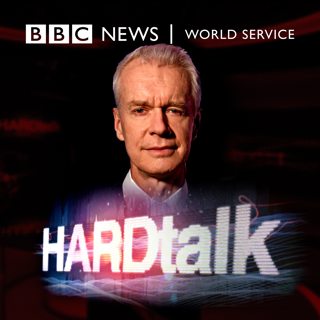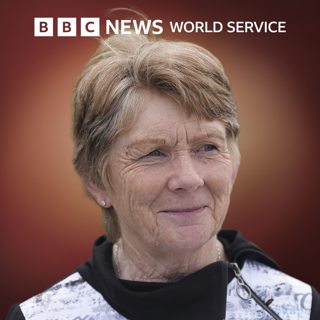
Stephen Cave: Should we want to live forever?
Stephen Sackur speaks to philosopher Stephen Cave, director of the University of Cambridge Institute for Technology and Humanity. He is at the centre of a growing debate about the merits of extending human longevity. Is it wise to seek to live forever?
8 Jan 202423min

Aida Touma-Sliman: What does war mean for Israel's Arab population?
What does the Gaza war mean for Israel’s Arab population? Stephen Sackur speaks to Israeli politician Aida Touma-Sliman, a Palestinian Arab member of Israel's parliament.
5 Jan 202423min

Past notes
A special programme remembering past HARDtalk guests who died in 2023. All of them left an indelible mark on public life and all, in their different ways, relished the opportunity we gave them to discuss their decision-making and motivation.
29 Dec 202323min

2023 in review
Stephen Sackur looks back at some of HARDtalk’s most impactful and thought-provoking interviews of 2023.
27 Dec 202323min

Naftali Bennett: Has Israel responded unwisely?
Stephen Sackur speaks to Israel’s former Prime Minister Naftali Bennett. He is a staunch supporter of Israel’s military assault in Gaza. But in responding to Hamas’s murderous October 7th attack, has Israel deployed wisdom as well as military might?
20 Dec 202322min

Izzeldin Abuelaish: Can Palestinians still believe in forgiveness and peace?
Zeinab Badawi speaks to the Palestinian doctor Izzeldin Abuelaish, whose three daughters and niece were killed in an Israeli tank strike on his home in the Gaza Strip in 2009. At the time, he said he felt no bitterness, and soon after he published his award-winning autobiography, I Shall not Hate. Now he has lost 22 more family members in the current bombardment. Is he still preaching his message of forgiveness and peace?
15 Dec 202323min

Sandra Day O'Connor: The first female US Supreme Court judge
The framers of the American Constitution harboured few illusions about human nature, and that’s why they invested so much significance in the US Supreme Court, the ultimate check on executive and legislative power. Sandra Day O’Connor, who died days ago at the age of 93, was the first woman to be appointed as a justice in this court. For 25 years, she was one of its most influential voices. HARDtalk travelled to Washington DC in 2006 to speak to her.Image: Sandra Day O'Connor, pictured in 2003 (Credit: Tom Mihalek/EPA-EFE/REX/Shutterstock)
11 Dec 202323min

Victoire Ingabire Umuhoza: What Rwandans think of the UK migrant transfer deal
Stephen Sackur speaks to Rwandan opposition leader Victoire Ingabire Umuhoza. The UK government, which has signed a controversial migrant transfer deal with Rwanda, paints President Paul Kagame in positive colours. How does that sit with his opponents?(Photo: Rwandan opposition leader Victoire Ingabire Umuhoza appears via videolink on BBC Hardtalk)
8 Dec 202323min






















